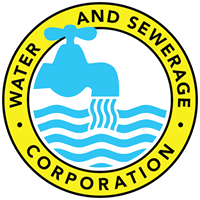News Archives
DPM: Alternative energy for Reverse Osmosis
Deputy Prime Minister and Minister of Works Philip Brave Davis acknowledged at The College of The Bahamas’ World Water Day 2015 celebration that sea level rise threatens to destroy major groundwater resources in The Bahamas, and lauded the Samoa Pathway – adopted in 2014 as a means to manage water resources and related ecosystems.
Davis said that national agencies responsible for water and sanitation services “continually plan for appropriate adaptation to the everchanging environmental conditions. The best technology will need to be used to provide pure water and to treat all waste effluents.
“Adapting to the use of new and improved technologies is critical. However, these are highenergy technologies, and in the long term, alternate energy solutions will need to be applied. Water and energy are inseparable friends,” Davis said.
“It is with this in view that The Bahamas is initiating the use of alternative energy as an energy source for reverse osmosis (RO), creatively engaging more and diverse applications of renewable energy sources to suit the composition of our many islands nation,” he said.
Davis reported that the Water and Sewerage Corporation of The Bahamas (WSC) is in talks with its major family island desalinated water supplier, Aqua Design/GE, and third parties to introduce renewable energy at its production facilities in the form of wind energy, thereby lowering the cost of water production in the Family Islands.
Davis also reported that Miya, the company that has been contracted to address the challenge of leakage and nonrevenue water, has been able, in 18 months, to reduce nonrevenue water by two million gallons per day on an annual basis.
“Over the life of the contractual agreement with Miya, it is expected that more than 10 billion gallons of water will be saved. By avoiding production of this water, we will save seven million gallons of diesel and 33 gigawatt hours of electricity,” Davis said.
“This, I am advised, is equivalent to powering over 600 households and over 800 vehicles for 10 years.”
Davis added that legislation is being drafted to allow the Utilities Regulation and Competition Authority (URCA) to regulate the water sector, just as it does for the communications sector and it intends to do for the electricity sector. A “sewerage master plan” is also being drafted for New Providence.
WSC General Manager Glen Laville also addressed the celebrations. He reported that the nonrevenue water reduction project had yielded savings of about a billion gallons of water since 2013, worth $7.4 million.
“The reality is that The Bahamas will have to rely on desalination, and that has a high energy demand. We have to look at more nonconventional systems within our Family Islands if we want to bring water supply. The conventional systems are too expensive for the small populations and dispersed settlements,” he said.
“In terms of nonrevenue water, after we finish with New Providence, we have to move into the Family Islands, which are losing about 50 percent of their water supply.”
Nathaniel Beneby, managing director of Royal Bank of Canada Bahamas, Cayman and Turks and Caicos Islands, reported that the bank has chosen water as a core area of support. Since 2007, the bank has donated more than $41 million to waterprotecting charities and more than $8 million to universities.
The bank gave COB a $75,000 Blue Water Project Leadership grant in order to mount the Blue Water Initiative at COB, a one year program designed to bring researchers and hotel industry partners together to expand research, training and outreach initiatives focused on sustainable water use in Nassau’s hotel and tourism industry.
COB President Dr. Rodney Smith said: “Grants are integral to helping The College of The Bahamas carry out and produce the necessary research that can and will inform the state of our country. The Blue Water project grant has enabled the college’s research team to bring focused research and awareness to the importance of fresh water.”
COB’s World Water Day celebrations will last through April 2.
By: K. Quincy Parker
The Nassau Guardian

